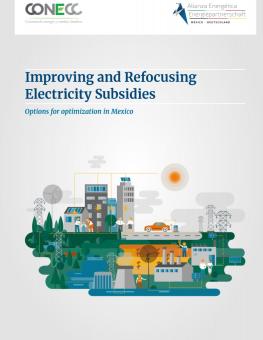
Improving and Refocusing Electricity Subsidies: Options for optimization in Mexico
IISD is proud to partner with CONECC German-Mexican Energy Partnership on this report which identifies and evaluates options for reforming Mexico’s electricity subsidies.
IISD is proud to partner with CONECC German-Mexican Energy Partnership on this report which identifies and evaluates options for reforming Mexico’s electricity subsidies.
In 2016 electricity subsidies amounted to MXN 130 billion (USD 6.8 billion). Households received 78 per cent of this subsidy, followed by the agricultural sector (11.3 per cent), industry (10 per cent) and services (0.7 per cent). The options are drawn from public reform discussions that have been taking place in Mexico and have been proposed by Mexican experts, focusing on the two most subsidized categories of electricity consumer: residential and agriculture. The evaluation is conducted considering a series of possible socioeconomic impacts on different income groups.
Reposted with the permission of Deutsche Gesellschaft für Internationale Zusammenarbeit (GIZ).
You might also be interested in
Doubling Back and Doubling Down: G20 scorecard on fossil fuel funding
This study tracks, for the first time, each G20 country's progress on ending support for fossil fuels—ranking their transparency, commitments, and financial support to oil, gas, and coal.
Federal Legislative Authority in Relation to Oil and Gas Development in Canada
This report outlines federal legislative authority related to oil and gas development in Canada.
Fossil Fuel Subsidy Reform in Aviation and Shipping
Countries can address fossil fuel subsidies in aviation and shipping by changing legislation to allow for reform and introducing emission levies.
Five Key Priorities to End Fossil Fuel Subsidies in Canada
As the G7 president in 2025, Canada has a pivotal opportunity to lead by fully phasing out fossil fuel supports and investing in a cleaner, more equitable future. Here are five recommendations for effective subsidy reform.